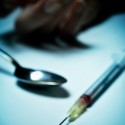Aversion Therapy for Alcohol Addiction Treatment
Aversion therapy is a type of therapy that teaches an alcoholic to associate some type of negative outcome with getting drunk. Aversion therapy is a way of conditioning the recovering alcoholic to not like alcohol because of the negative effects that alcohol has on them thus breaking the cycle of addiction. Aversion therapy can be an excellent form of treatment for individuals who are addicted to alcohol.
Alcohol Abuse Aversion Treatment
Because everyone responds differently to alcohol abuse treatment, no single type of treatment is guaranteed to be effective for everyone. Alcohol abuse aversion treatment is a means of helping the addict to not want to use alcohol because they have learned how to associate negative experiences with the use of alcohol. Certain medications can also be used to cause such negative effects making aversion therapy even more effective.
Antabuse, a common medication used to cause negative effects on the individual when they drink alcohol, is one form of aversion therapy. Antabuse makes the body not able to break the alcohol down so when an addict is taking Antabuse and drinks they do not feel any of the pleasurable effects of the alcohol and they do not get drunk. There are even medications that cause the individual to feel sick when they drink which can help them to stop using and avoid the desire to drink.
Biological Aversion Therapy
Biologically, aversion therapy can be used to condition the individual to associate negative outcomes with alcohol. Using a means of conditioning, the patients learns how to think about alcohol as a negative experience. Similar types of aversion therapy are also used to help individuals who are addicted to various other drugs such as heroin, methamphetamine or prescription medications.
Using aversion therapy, the individual learns to associate negative side effects with their drinking. Some of the effects that may be felt when an individual takes medications that promote aversion therapy include nausea, vomiting, severe headache and shortness of breath. Over time, the individual will associate these effects with their drinking and will ultimately stop having the urge to drink.
While aversion therapy is not for everyone, it can be a beneficial means of treatment for some people. If you or someone you love is addicted to alcohol and needs help, consider talking with your doctor or therapist about aversion therapy and if it can work for you. For more information or for help finding a local alcohol treatment center that can help you overcome addiction to alcohol, call 1-888-461-2155.


